How to Effectively Extract Google Shopping Data?
How to Effectively Extract Google Shopping Data?
May 22, 2024
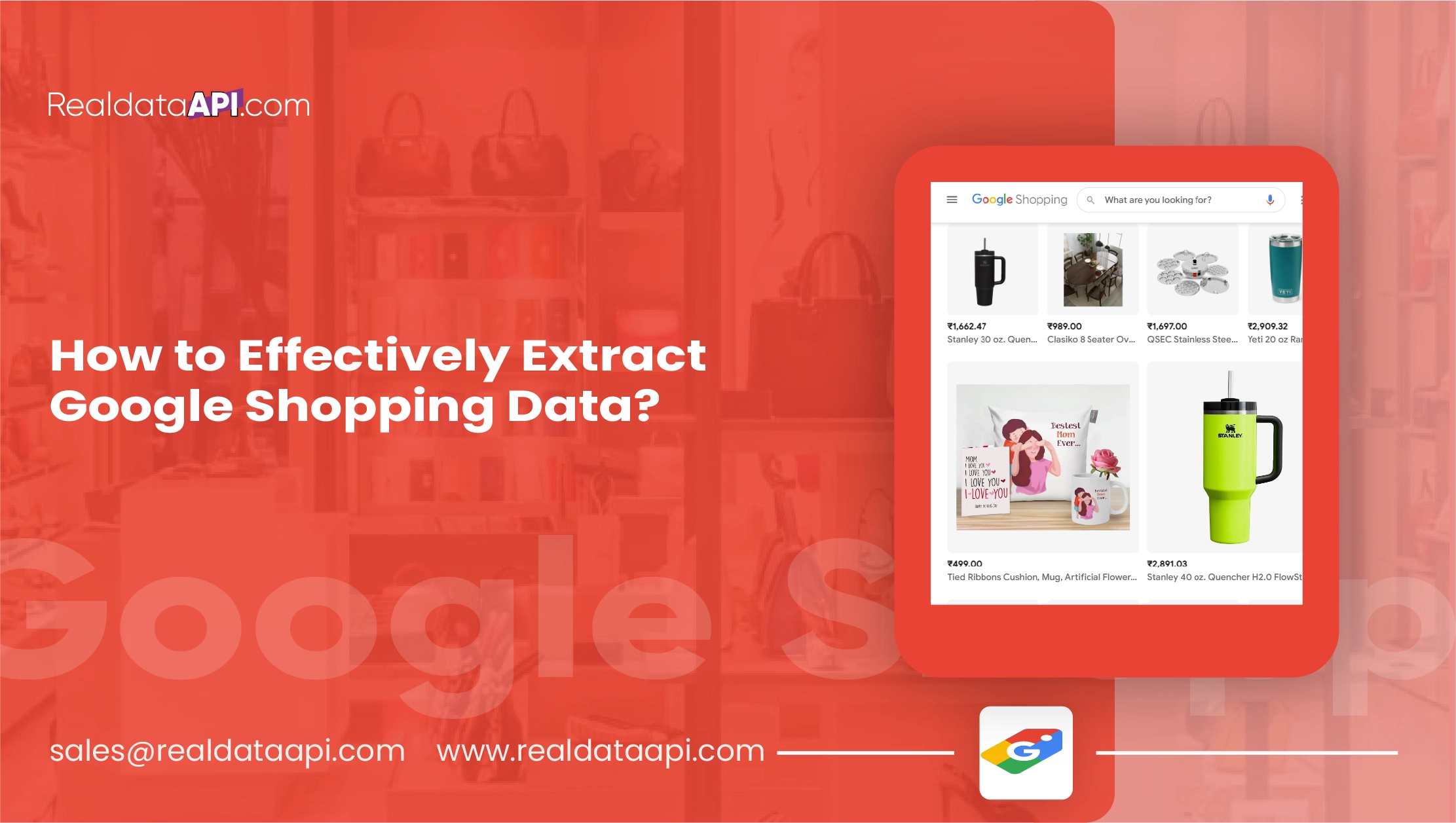
Introduction
In today's competitive e-commerce landscape, data is invaluable. For businesses looking to stay ahead, to scrape Google shopping data can provide critical insights into pricing, product availability, market trends, and competitor strategies. This blog will explore the benefits, methods, and best practices for Google Shopping data scraping. We will cover various aspects such as using Google Shopping scrapers, APIs, and web scraping services to efficiently collect and utilize this data.
Why Extract Google Shopping Data?
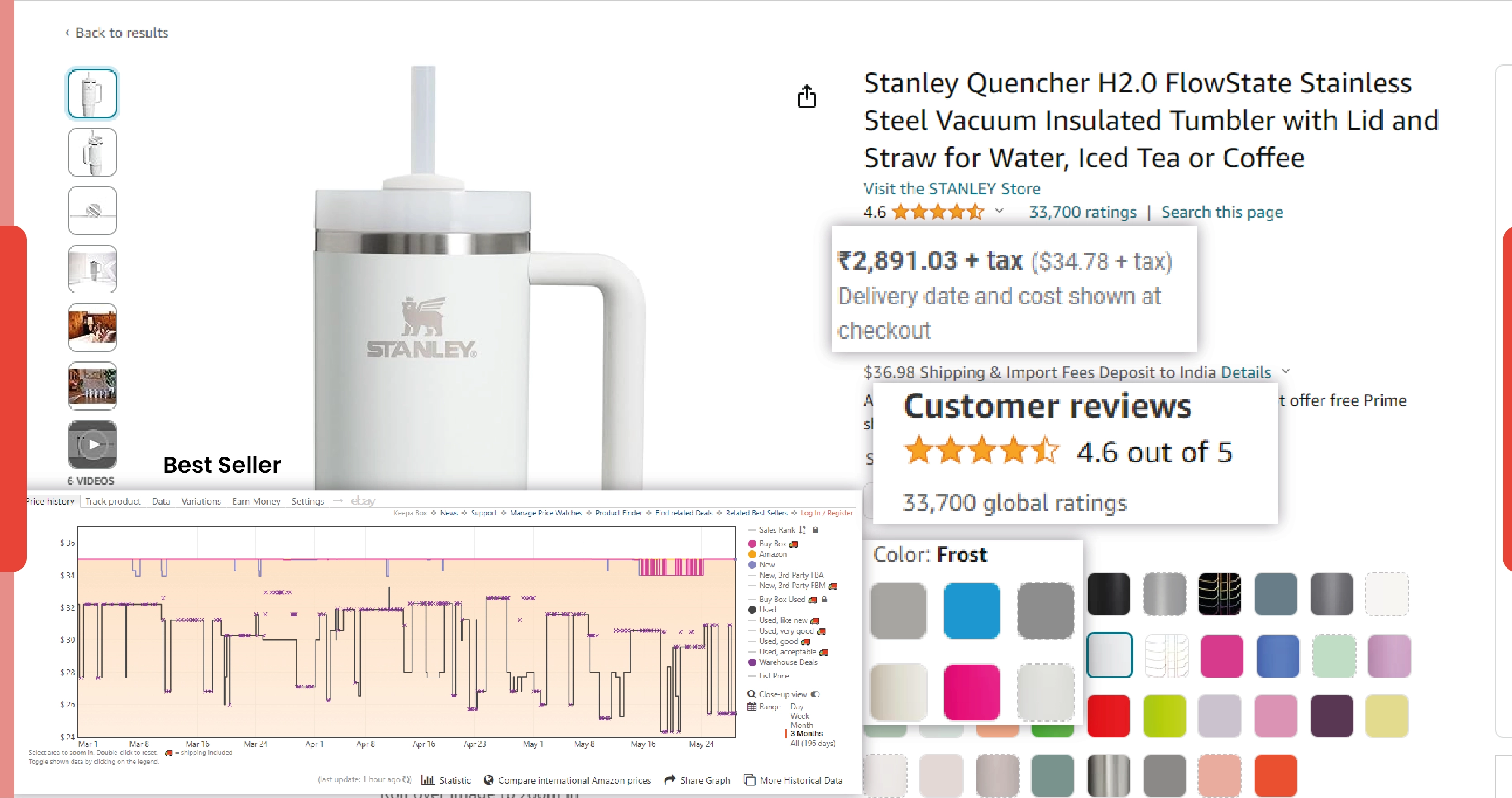
Market Research
Extracting Google Shopping data is essential for comprehensive market research. By leveraging Google shopping data scraping techniques, businesses can gather valuable insights into consumer preferences, trending products, and overall market demand. This data helps in identifying gaps in the market, understanding customer needs, and developing effective marketing strategies.
Price Comparison
One of the most significant advantages of Google shopping data extraction is the ability to perform accurate price comparisons. By using a Google shopping scraper, businesses can monitor competitors’ prices in real-time. This enables them to adjust their own pricing strategies to remain competitive, attract more customers, and maximize profitability. Effective price comparison can be a game-changer in maintaining a competitive edge in the market.
Competitive Analysis
Google shopping data extraction allows businesses to conduct detailed competitive analysis. By examining competitors' product listings, prices, reviews, and ratings, businesses can identify their strengths and weaknesses. This data-driven approach helps in developing strategies to outperform competitors and improve market positioning. A Google shopping data extractor can provide the detailed information needed to gain a competitive advantage.
Product Development
Google shopping data collection is invaluable for product development. By analyzing popular products, features, and customer reviews, businesses can identify what works and what doesn’t. This insight helps in creating or enhancing products to better meet market demand. Scraping Google shopping data can reveal trends and preferences that inform product design and innovation.
Real-time Insights
Using web scraping services to extract Google shopping data provides real-time insights into the market. This ensures that businesses have the most current information about market trends, pricing, and competitor activity. Real-time data is crucial for making timely and informed business decisions, allowing businesses to quickly adapt to changing market conditions.
Strategic Planning
Access to comprehensive and up-to-date data through Google shopping data scraping aids in strategic planning. Whether it’s expanding product lines, entering new markets, or optimizing supply chains, having accurate data supports informed decision-making. Businesses can scrape Google shopping API to build robust, data-driven strategies that drive growth and success.
To scrape Google shopping data is a critical component for businesses aiming to excel in the competitive e-commerce landscape. By leveraging advanced web scraping techniques and tools, businesses can gain invaluable insights, perform precise price comparisons, and make informed strategic decisions.
Methods to Extract Google Shopping Data
Web Scraping
Web scraping involves extracting data from websites using automated tools. Here are some popular methods and tools for scraping Google Shopping data:
Using BeautifulSoup and Requests
BeautifulSoup and Requests are Python libraries commonly used for web scraping. BeautifulSoup is used for parsing HTML and XML documents, while Requests is used for sending HTTP requests to fetch web pages.
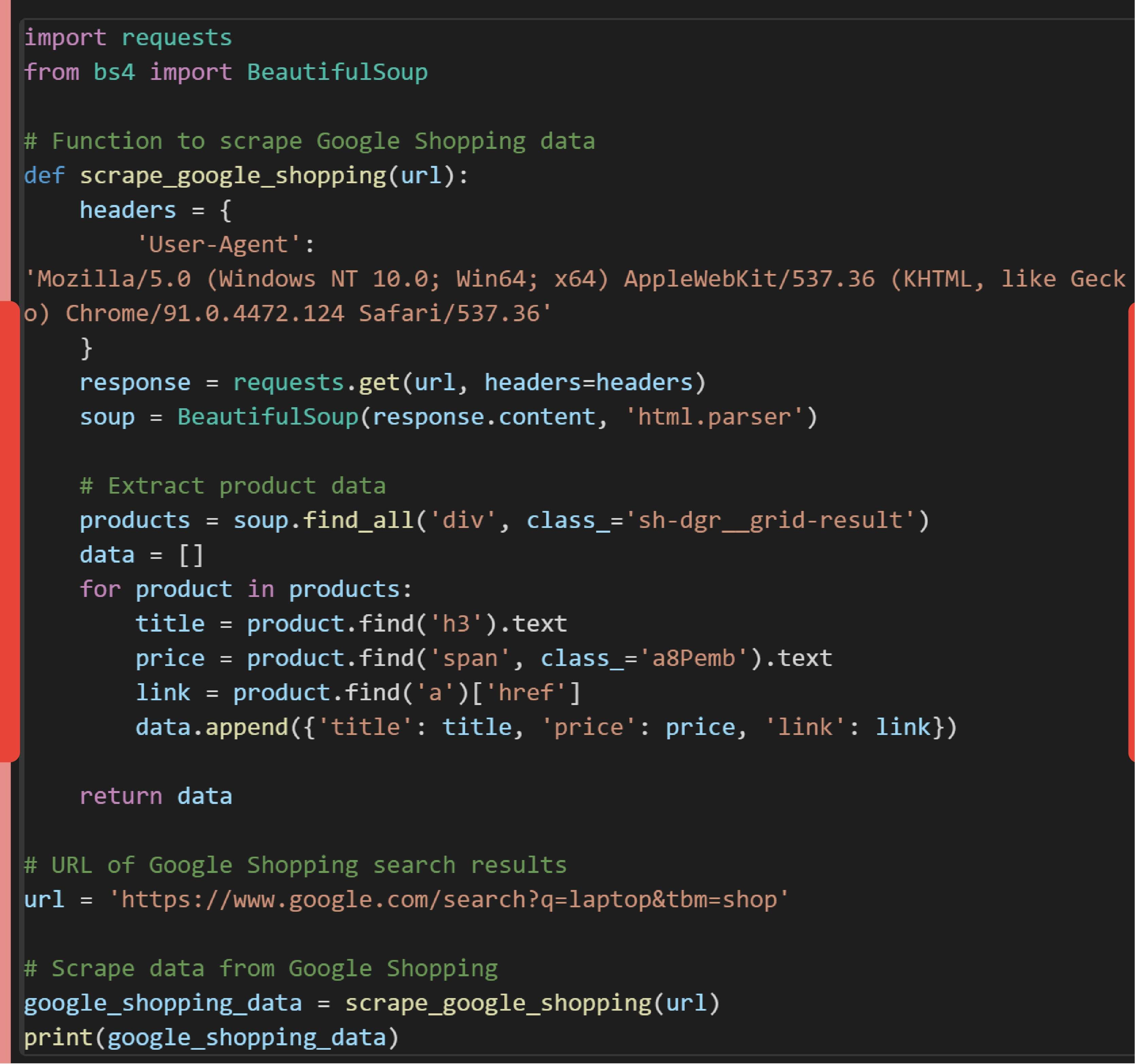
Using Scrapy
Scrapy is a powerful web scraping framework for Python. It provides an easy way to define data extraction rules and handle complex scraping tasks.
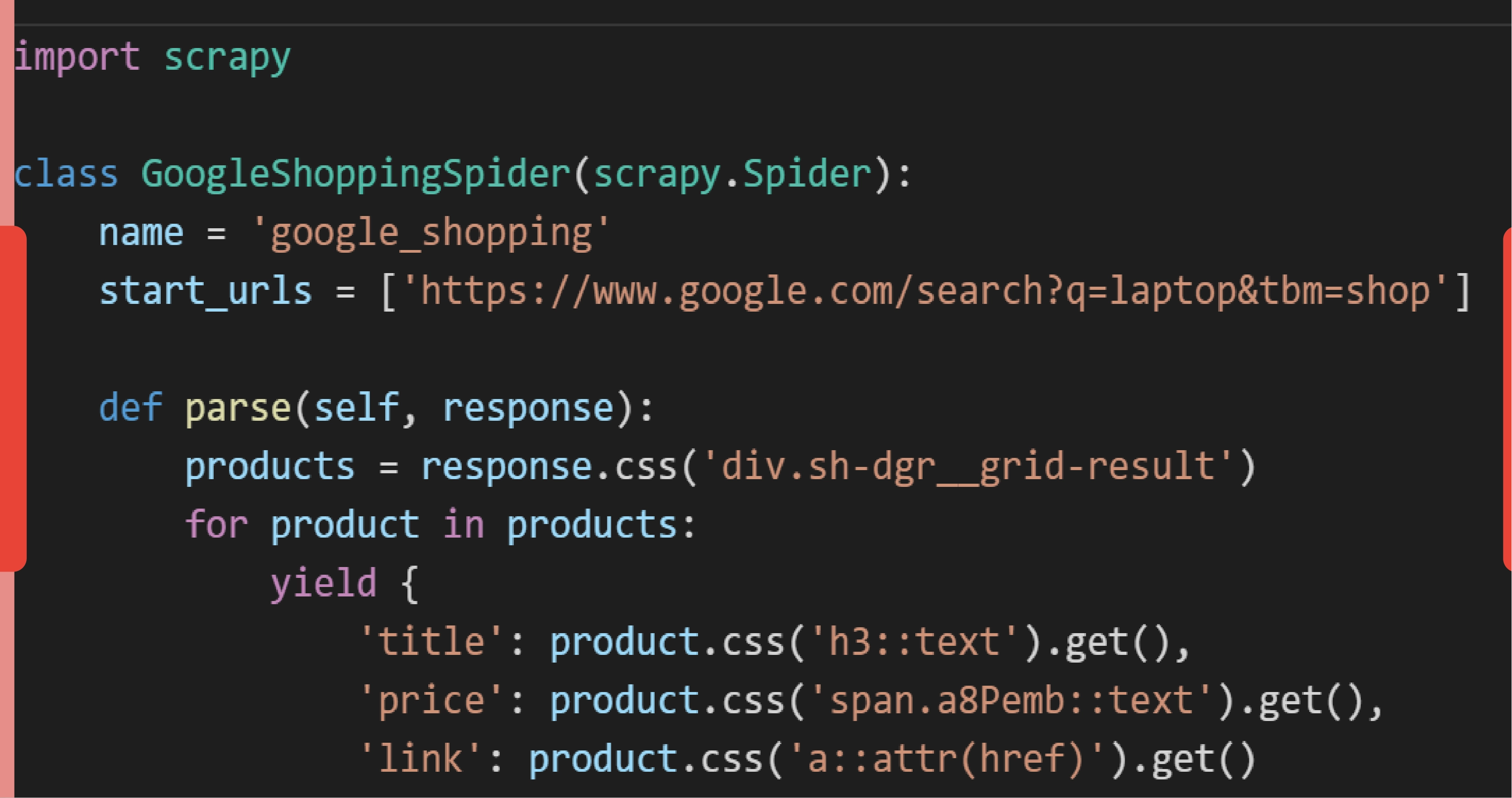
Using Google Shopping API
When you scrape Google shopping API data, it provides a more structured and reliable way to access Google Shopping data. It allows businesses to programmatically access product data, including prices, availability, and reviews. However, using the API requires adherence to Google's usage policies and may involve costs.
Example of Using Google Shopping API
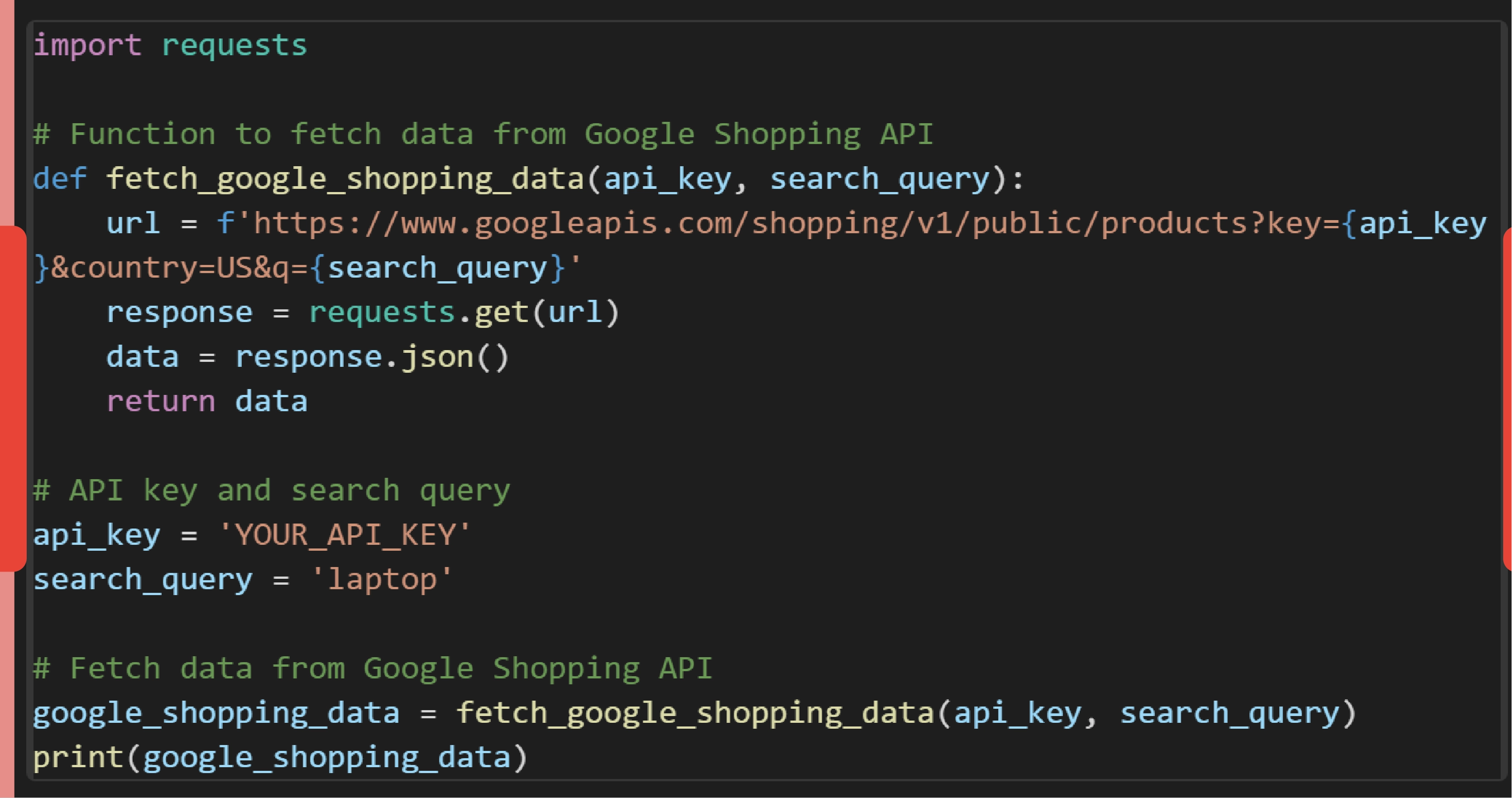
Best Practices for Google Shopping Data Scraping
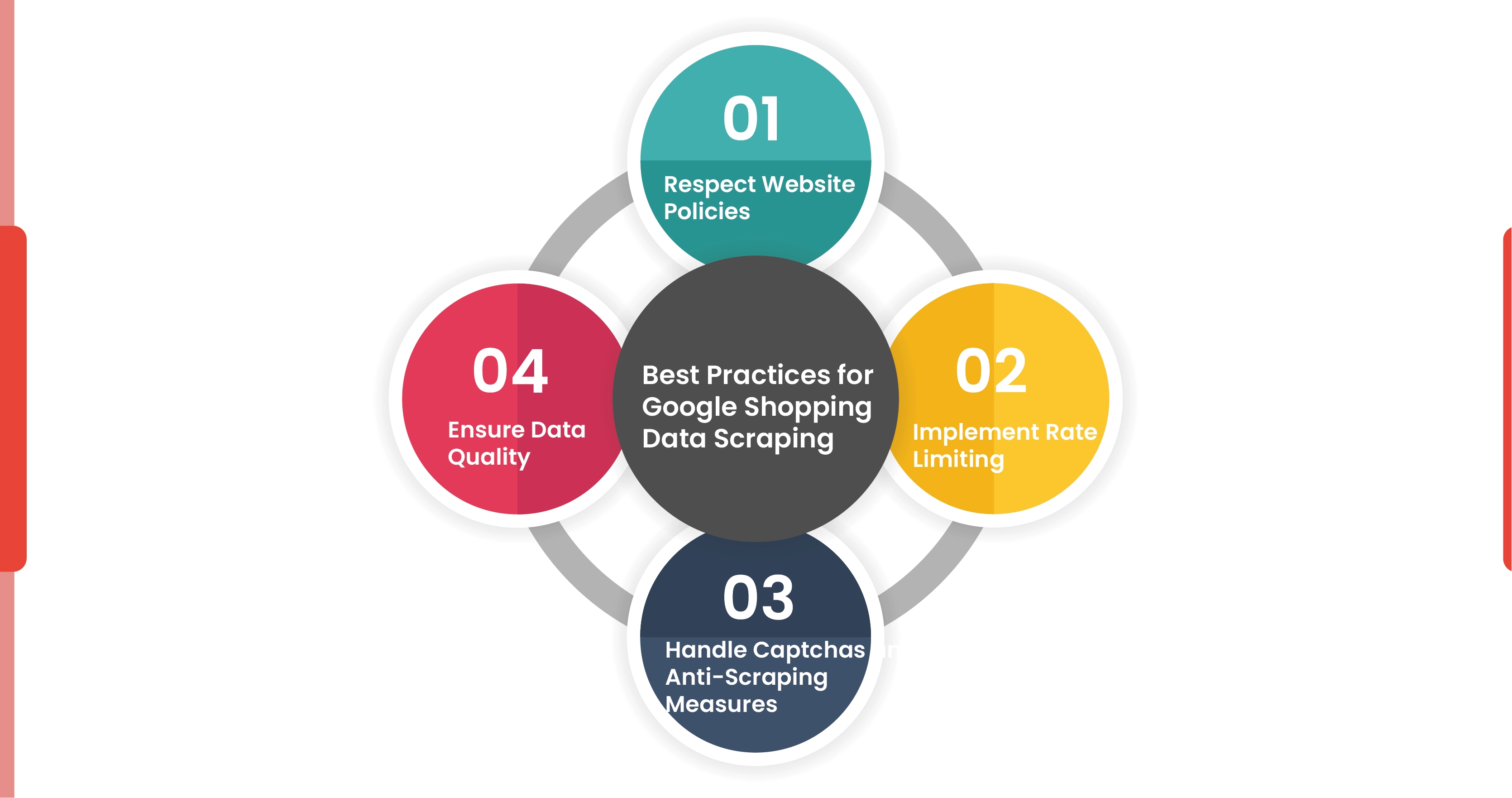
Respect Website Policies
When scraping data, it's essential to respect the website's terms of service and usage policies. Non-compliance can lead to legal issues and potential banning from the site.
Implement Rate Limiting
To avoid overwhelming the target website's servers, implement rate limiting in your scraping script. This involves adding delays between requests to mimic human browsing behavior.
Handle Captchas and Anti-Scraping Measures
Websites like Google often use captchas and other anti-scraping measures to prevent automated data extraction. Use tools like Selenium to handle dynamic content and captchas effectively.
Ensure Data Quality
Validate and clean the extracted data to ensure accuracy and consistency. This involves removing duplicates, handling missing values, and correcting errors.
Use Proxies
To avoid IP blocking, use rotating proxies. This helps distribute requests across multiple IP addresses, reducing the risk of detection.
Conclusion
To scrape Google shopping data can provide invaluable insights for businesses, aiding in market research, price comparison, product development, and competitive analysis. By leveraging advanced web scraping techniques and tools like Google Shopping scrapers and APIs, businesses can efficiently collect and utilize this data. While there are challenges involved, following best practices ensures successful and ethical data scraping.
Ready to unlock the power of Google Shopping data? Integrate Google Shopping data extraction services from Real Data API today and gain a competitive edge in the market!